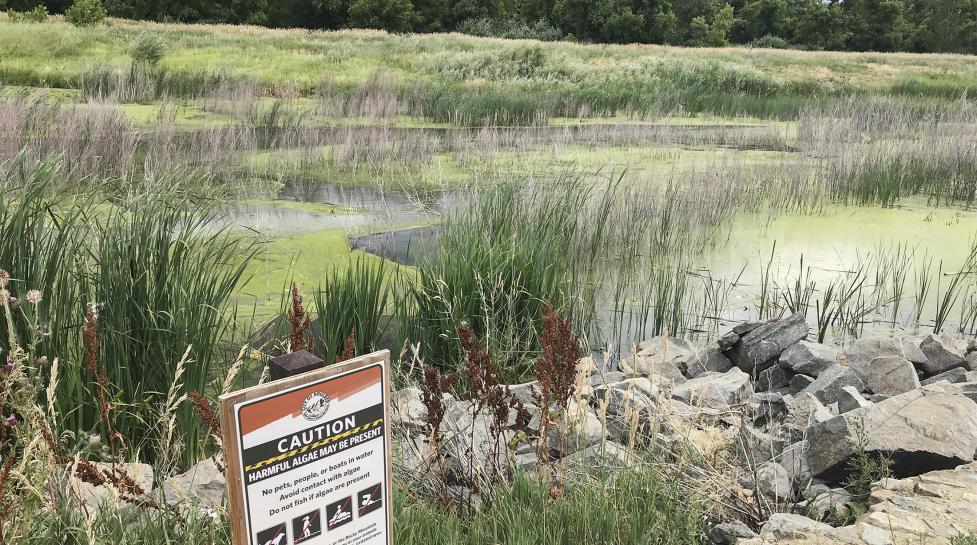Some algal blooms can contain cyanobacteria – often referred to as blue-green algae.
Some algal blooms can contain cyanobacteria – often referred to as blue-green algae.
As temperatures are likely to remain high through the summer, the City of Boulder reminds community members to exercise caution at lakes and ponds where potentially harmful algae may be present. Some algal blooms can contain cyanobacteria – often referred to as blue-green algae. They may produce toxins that are harmful to dogs and humans at elevated levels.
Community members should keep children and pets out of any pond or lake where ANY algae are observed – regardless of whether advisory signs are posted in the area. Potentially harmful algae blooms often appear rapidly in water bodies during hot summer months. Nitrogen and phosphorus (nutrient) loading from fertilized lawns also helps to facilitate harmful algal blooms.
In recent days, city staff have observed algae that could contain cyanobacteria at lakes and ponds managed by Open Space and Mountain Parks (OSMP), including Wonderland Lake, Sawhill Ponds and the Cottonwood /Goose Creek Pond near 55th Street and Pearl Parkway. Swimming, wading and boating are prohibited at these locations.
According to the Colorado Department of Public Health and Environment, potentially harmful algae blooms containing cyanobacteria often:
- Look like thick pea soup.
- Resemble paint spilled on the water's surface and shoreline.
- Create a thick mat of foam along the shoreline.
In general, the long, stringy, bright green strands that appear either slimy or cottony or are mustard yellow in color are not the harmful type of algae. The city does not test for cyanobacteria at lakes and ponds because the production of cyanotoxins is highly variable. Cyanobacteria doesn’t always produce toxins – which may be detectable at one time but dissipate within hours.
Keep Reading
News keep reading
-
City of Boulder to Conduct Prescribed Burn Today in North Boulder
-
City of Boulder to Continue Prescribed Burns Today In Northeast Boulder
-
City of Boulder to Continue Prescribed Burn on Thursday, March 27 in East Boulder
-
City of Boulder to Continue Prescribed Burns on Thursday, March 27 – New Location
